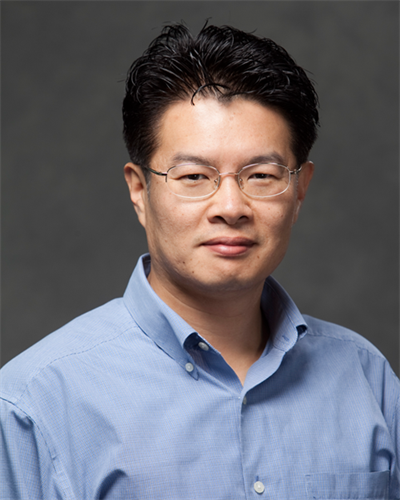
Hyunmin Yi

Research/Areas of Interest
nanobiofabrication, smart biopolymers, BioMEMS, material science
Education
- Ph.D., University of Maryland, United States, 2003
- M.S., Seoul National University, Seoul, Korea, Republic of, 1998
- B.S., Seoul National University, Seoul, South Korea, 1996
Biography
Hyunmin Yi is an associate professor in the Department of Chemical and Biological Engineering at Tufts University. He received his B.S. degree in chemical technology and M.S. in biochemical engineering from Seoul National University in Korea, and his Ph.D. and postdoctoral training in chemical engineering from University of Maryland at College Park. Yi's main research interests are in understanding and harnessing the selective and programmable properties of biological materials and interactions for facile fabrication of functional materials toward catalytic and biosensing applications. He has published over 50 research articles in respected peer-reviewed journals such as Analytical Chemistry, Journal of Materials Chemistry, Langmuir, Biomacromolecules, Nano Letters, ACS Nano, Biotechnology and Bioengineering, and Chemistry of Materials, in the broad technical areas of biochemical engineering, nanobiotechnology, and biofabrication. His extensive service activities for the community include participation in numerous U.S. National Science Foundation (NSF) grant proposal review panels, serving as reviewer for over 70 journals, giving over forty invited talks, acting as organizer or chair for workshops at U.S. National Laboratories, and organizing sessions at American Chemical Society (ACS) and American Institute for Chemical Engineers (AIChE) national meetings and U.S. Korea Conferences (UKC). Yi is the Department of Chemical and Biological Engineering's undergraduate curriculum chair.
Hyunmin Yi's general research interests are in understanding and exploiting selective and programmable properties of biological materials and interactions for the controlled fabrication of functional materials at micro and nano scales (nanobiofabrication) such as multifunctional biosensors, biophotonic devices, and precious metal nanocatalysts, for biomedical, environmental, and biotechnology applications.
Hyunmin Yi's general research interests are in understanding and exploiting selective and programmable properties of biological materials and interactions for the controlled fabrication of functional materials at micro and nano scales (nanobiofabrication) such as multifunctional biosensors, biophotonic devices, and precious metal nanocatalysts, for biomedical, environmental, and biotechnology applications.